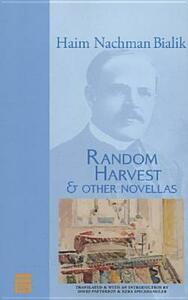Take a photo of a barcode or cover
I am struck afresh by the aptness and loving detail of Hilton's description of autumnal London:
'For London...was of all cities in the world the most autumnal--its mellow brickwork harmonzing with fallen leaves and October sunsets, just as the etched grays of November composed themselves with the light and shade of Portland stone. There was a charm, a deathless charm, about a city whose inhabitants went about muttering, "The nights are drawing in," as if it were a spell to invoke the vast, spawling creature-comfort of winter. Indeed no phrase...better expressed the feeling of blanketed enclosure, of almost stupefying cosiness, that blankets London throughout the dark months--a sort of spiritual central heating, warm and sometimes weepy, but not depressing--a Dickensian, never a Proustian fug.'
It is fascinating that the most interesting story is Mrs. Rainier's and here the novelist is silent. He must be so for the sake of a plot twist but it is curious. Her self-sacrifice and emotional turmoil are not articulated, only hinted at. I wonder if this is a reflection on a certain perception of women's roles--to be noble, to be unrecognized or else reviled as the steel and iron behind a man, to love in silence. She is central to the story yet at its periphery, as mysterious as Rebecca but without her malice. That being said, I thoroughly enjoyed this book, as I did the 1942 film version.
'For London...was of all cities in the world the most autumnal--its mellow brickwork harmonzing with fallen leaves and October sunsets, just as the etched grays of November composed themselves with the light and shade of Portland stone. There was a charm, a deathless charm, about a city whose inhabitants went about muttering, "The nights are drawing in," as if it were a spell to invoke the vast, spawling creature-comfort of winter. Indeed no phrase...better expressed the feeling of blanketed enclosure, of almost stupefying cosiness, that blankets London throughout the dark months--a sort of spiritual central heating, warm and sometimes weepy, but not depressing--a Dickensian, never a Proustian fug.'
It is fascinating that the most interesting story is Mrs. Rainier's and here the novelist is silent. He must be so for the sake of a plot twist but it is curious. Her self-sacrifice and emotional turmoil are not articulated, only hinted at. I wonder if this is a reflection on a certain perception of women's roles--to be noble, to be unrecognized or else reviled as the steel and iron behind a man, to love in silence. She is central to the story yet at its periphery, as mysterious as Rebecca but without her malice. That being said, I thoroughly enjoyed this book, as I did the 1942 film version.
Random Harvest is told in first person from the perspective of a man named Harrison. He meets Charles Rainier who is suffering from memory loss, but has flashes of familiarity with places or experiences from time to time on a train and they strike up a conversation. We learn that Rainier is currently a successful businessman and speaker, and in the first part of the book he confides his malady to Harrison. In part 2, Rainer goes on to relate to Harrison about his recent life since the time he remembers waking up on a park seat in Liverpool. Later in the novel we learn about Rainier’s life before that time. Hilton keeps us waiting until the very last sentence in the book, however, to reveal an unexpected detail. Well written and entertaining.Random Harvest is told in first person from the perspective of a man named Harrison. He meets Charles Rainier who is suffering from memory loss, but has flashes of familiarity with places or experiences from time to time on a train and they strike up a conversation. We learn that Rainier is currently a successful businessman and speaker, and in the first part of the book he confides his malady to Harrison. In part 2, Rainer goes on to relate to Harrison about his recent life since the time he remembers waking up on a park seat in Liverpool. Later in the novel we learn about Rainier’s life before that time. Hilton keeps us waiting until the very last sentence in the book, however, to reveal an unexpected detail. Well written and entertaining.
Having seen the old movie with Greer Garson and Ronald Colman, I was curious to see how the book compared. The plot is the same, but the events are arranged differently in the book vs. in the movie, so the big plot twist is different as a result.
The movie focuses more on Paula, and the book focuses more on Charles. Of the two, I think I prefer the movie -- but I'm probably biased because I'm a big Greer Garson fan.
The movie focuses more on Paula, and the book focuses more on Charles. Of the two, I think I prefer the movie -- but I'm probably biased because I'm a big Greer Garson fan.
It took me a few chapters to get into Random Harvest by James Hilton, but once I did I enjoyed it immensely. Set in post WWI England, it is the story of Charles Rainier who is wounded and loses his memory during the war. I won't give much more away...they just don't write books like this anymore. Very good read.
Random Harvest" is a captivating tale that explores the life of a man who loses his memory during the Great War. This literature review aims to provide an overview of the story, highlighting its key elements and themes.
The story revolves around a man who suffers memory loss after being shelled during the Great War. As he gradually rebuilds his life, he finds happiness with a young actress. However, a tragic accident in Liverpool causes him to regain consciousness and remember his true identity as a member of a wealthy and prominent family. Despite his success in business and politics, he feels that something and someone are missing from his life.
The enigmatic wife, who was once his secretary, plays a crucial role in his life. She quietly arranges social gatherings and dinner parties for him, ensuring his success in his professional endeavors. The narrative explores the complexities of their relationship and the sacrifices made for the sake of his public image.
The 1942 movie is wonderful.
I keep revisiting this because Tim really likes the movie, and you can watch it pretty frequently on TCM. So now I've read it twice, and listened to it once. It's a good story, and well-written, but I feel kind of meh about the central premise -- the intelligent and capable and beautiful woman who's just completely devoted to making the man happy. I know that she's happy with him, too; and probably the way he lifts her out of the working class is supposed to make it ok. A well-written book by a well-intentioned and sensitive person that is just completely and unconsciously full of the idea that the man's perspective is what matters, and the female characters are ... secondary. Other. Only important to the extent that they save or annoy the male characters.
As good as the movie, but very different from the movie.
challenging
informative
sad
medium-paced
Plot or Character Driven:
A mix
Strong character development:
Complicated
Loveable characters:
Yes
Diverse cast of characters:
No
Flaws of characters a main focus:
Complicated
I caught the movie by accident and really loved the movie with Greer Garson. The book wasn't nearly as good and was somewhat hard to follow. The man loses his memory several times forgetting his long term memory, then his short term memory. Of course things work out by the end, but the ending of the movie is so much better.



